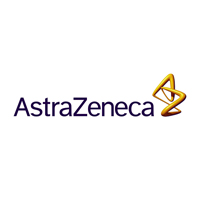AstraZeneca (LON:AZN) has announced today that Lokelma has been approved in China for the treatment of adult patients with hyperkalaemia.
The approval by the National Medical Products Administration (NMPA) was based on positive results from the extensive Lokelma clinical trial programme and a pharmacodynamic study in China which showed that patients receiving Lokelma experienced a significant, rapid and sustained reduction of potassium in the blood.
In 2019, the NMPA included Lokelma on the Accelerated Approval list of “Overseas New Drugs in Clinical Urgent Needs for China”, recognising the significant unmet need for effective medicines treating hyperkalaemia.
Mene Pangalos, Executive Vice President, BioPharmaceuticals R&D, said: “This approval marks an important milestone for more than two million patients in China who suffer from hyperkalaemia. Lokelma will offer the opportunity for patients and physicians to achieve long-term disease control and potentially reduce the risk of acute episodes, which can have serious, even life-threatening consequences.”
The Lokelma clinical trials programme includes three double-blinded, placebo-controlled trials and one open-label trial, where patients with hyperkalaemia were treated for up to 12 months. These trials showed that for patients receiving Lokelma, the median time to achieving normal potassium levels in the blood was 2.2 hours, with 98% achieving normal levels within 48 hours from baseline.1-3 Lokelma also demonstrated a rapid reduction of potassium in the blood as early as one hour with one dose and a sustained treatment effect for up to one year.1,2,4 Lokelma was well tolerated, with few serious adverse events.2
Lokelma is approved in the US, the EU and Canada for the treatment of hyperkalaemia. It is undergoing separate regulatory review in Japan, with a decision expected in the first half of 2020.
Hyperkalaemia
Hyperkalaemia is characterised by high levels of potassium in the blood (generally classified as >5mmol/l).1 The risk of hyperkalaemia increases significantly for patients with chronic kidney disease (CKD) and for those who take common medications for heart failure (HF), such as RAAS inhibitors, which can increase potassium in the blood. Hyperkalaemia occurs in 23% to 47% of patients with CKD and/or HF, with an estimated 200 million and 64 million people, respectively, living with each condition worldwide.5-7 Hyperkalaemia may lead to cardiac arrest and death, with mortality being up to 30% in patients with severe hyperkalaemia, if not treated rapidly.8
Lokelma
Lokelma is an insoluble, non-absorbed sodium zirconium silicate, formulated as a powder for oral suspension, that acts as a highly selective potassium-removing medicine. It is administered orally, is odourless, tasteless and stable at room temperature. It has been evaluated in three double-blinded, placebo-controlled trials and in one 12-month open-label trial in patients with hyperkalaemia.
AstraZeneca in CVRM
Cardiovascular, Renal and Metabolism (CVRM) together forms one of AstraZeneca’s three therapy areas and is a key growth driver for the Company. By following the science to understand more clearly the underlying links between the heart, kidneys and pancreas, AstraZeneca is investing in a portfolio of medicines to protect organs and improve outcomes by slowing disease progression, reducing risks and tackling co-morbidities. The Company’s ambition is to modify or halt the natural course of CVRM diseases and potentially regenerate organs and restore function, by continuing to deliver transformative science that improves treatment practices and cardiovascular health for millions of patients worldwide.








































